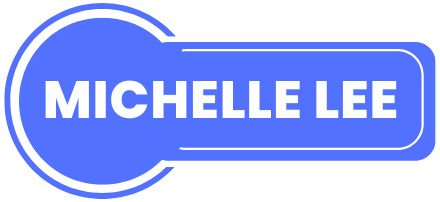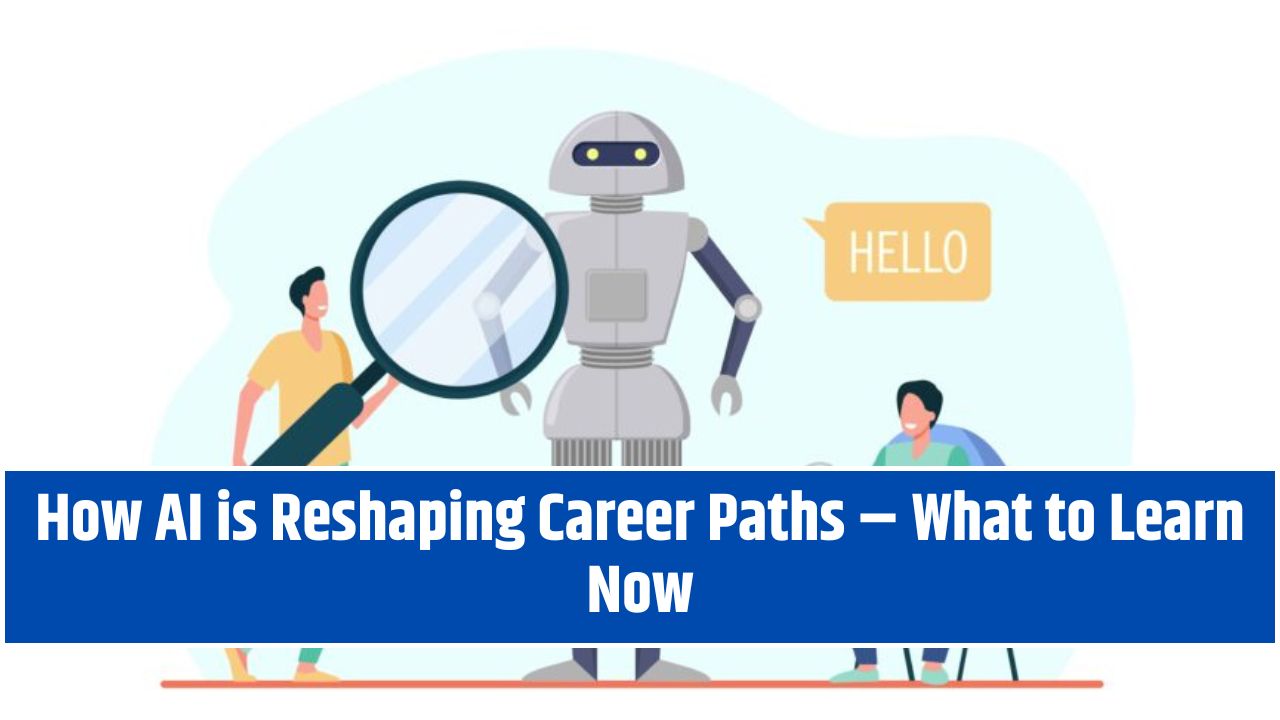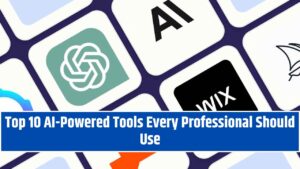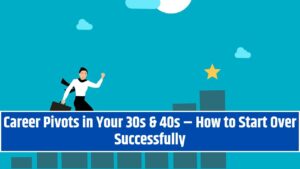“Do robots dream of taking your job?”
Okay, that sounds a bit dramatic. But honestly, if you’ve found yourself doom-scrolling through Reddit threads or sipping your morning coffee wondering whether your career is about to get robo-jacked by AI… you’re not alone. The question isn’t just if artificial intelligence is changing career paths—it’s how fast and what on earth we’re supposed to do about it.
Grab a snack. We’re diving into the gritty truth, some hopeful hacks, and a few personal nuggets I’ve picked up along the way. Let’s make this whole AI-meets-work thing feel a little less sci-fi panic and a lot more “heck yes, I’ve got this.”
Flashback: That Time I Almost Lost My Job to a Bot
Quick story. A few years ago, I was working as a junior copywriter. Life was good: kombucha in the fridge, Spotify playlists for focus, and that sweet rush from finishing a killer product description.
Then one day—boom. An email hits my inbox. “We’re testing an AI tool for content generation.” Cue nervous laughter. Fast-forward two months, and we’re using the tool daily. It wasn’t replacing me yet… but it was breathing down my neck like the annoying kid who wants your seat on the bus.
That was the wake-up call. I had two choices: fear the robot, or figure out how to make it my sidekick.
Spoiler: I picked sidekick. Here’s how you can too.
1. The Career Landscape Is Shifting—Fast
It’s like tectonic plates under the ocean. You don’t always see the change, but one day, there’s a new island. AI isn’t just tinkering with jobs—it’s rerouting entire industries. Let’s break it down:
- Jobs Being Automated: Think data entry, basic bookkeeping, appointment scheduling. Repetitive stuff? Robots are all over it.
- Jobs Being Augmented: Designers, writers, analysts. These roles aren’t going away, they’re being enhanced. AI helps, but human creativity still rules.
- Jobs Being Invented: AI ethicist, prompt engineer, human-AI interaction designer—yep, these are real roles. A few years ago, they didn’t even exist.
Hot Take: You don’t need to fear AI. You just need to learn how to work with it.
2. Skills to Learn Now (Like, Yesterday)
Let’s talk practical. If you want to future-proof your career and stay relevant (without becoming a cyborg), here’s what to focus on:
Digital Literacy
You don’t have to code like Neo in The Matrix, but you do need to know how tech works. Understand cloud systems. Learn the basics of APIs. Know how to use automation tools like Zapier or Notion AI.
AI Fluency
Get friendly with the bots. Learn how AI models like ChatGPT or Midjourney work. Try using them in your workflow. Follow AI news. Read newsletters. Watch YouTube breakdowns. (Shoutout to ColdFusion and Two Minute Papers!)
Critical Thinking
AI can give you 100 options. Knowing which one to choose? That’s still your job. Think like a strategist. Learn how to interpret data, not just regurgitate it.
Human Skills
Soft skills are the new hard skills. Emotional intelligence, storytelling, collaboration—AI struggles with these. People who connect well with others will always have an edge.
3. Careers That Are Becoming AI-Proof (ish)
No job is totally safe. But some are definitely more future-ready. Here’s what’s rising while others fall:
- AI + Human Hybrid Roles: Think marketers who use AI for customer segmentation or writers who use ChatGPT to brainstorm.
- Tech-Adjacent Creatives: UX designers, AI trainers, simulation builders. These folks blend art and tech seamlessly.
- People-Centric Jobs: Therapists, coaches, educators—roles where human connection can’t be coded.
- Adaptable Freelancers: People who wear multiple hats and pivot quickly. Flexibility = job security.
Want a quirky example? There’s this woman on TikTok who helps small businesses build chatbots for customer service. She literally makes thousands a month from her living room. AI didn’t take her job—it created one.
4. So…What Should YOU Learn Right Now?
Okay, here’s the golden list. Take a screenshot. Tattoo it on your fridge. These are the top skills and tools to start exploring today:
- Prompt Engineering – Learn how to talk to AI effectively (it’s weirder than you think).
- No-Code Tools – Like Bubble, Webflow, Airtable, Notion.
- Data Visualization – Using tools like Tableau or Power BI.
- Basic Python – You don’t need to be a developer, but being able to run a script is like the new Excel wizardry.
- Communication Skills – Verbal, written, and visual storytelling.
- Adaptability – Not a skill you can download, but one you grow by constantly trying new things.
5. The Mental Game: Survive and Thrive in the Age of AI
Let’s be real. This whole “robots might take my job” thing can mess with your head. I’ve had those 3AM panic spirals. It sucks. So here’s what helped me shift gears:
Find Your Why
Yeah, it’s cheesy. But seriously—what lights you up? AI can do the how, but you still bring the why. Purpose isn’t replaceable.
Lean Into Lifelong Learning
Be curious. Take online courses. Read weird blogs. Follow creators who make your brain stretch. Treat learning like a lifestyle.
Embrace Change Like a Superpower
People who win in chaotic times aren’t the smartest—they’re the most flexible. Start seeing change as a game, not a threat.
Quoting the Wise: “You’re Not Competing With AI. You’re Competing With People Who Know How to Use AI.”
That quote? From Andrew Ng, one of the pioneers of AI education. Let it sink in.
If you’re resisting this shift, you’re already behind. But if you embrace it—even a little—you’re in the driver’s seat. And guess what? You get to decide where to steer.
Final Thoughts: It’s Not About Jobs, It’s About Journeys
Look, the AI revolution isn’t just about what’s being automated. It’s about what’s being amplified in you. Creativity. Curiosity. Connection. These aren’t buzzwords—they’re your armor.
You’re not a cog in a machine. You’re the mechanic who learns how to tweak, drive, or build the next one.
So start now. Learn the tools. Evolve your skills. Chase your curiosities. AI isn’t the enemy—it’s just the next chapter. And you, my friend, are holding the pen.
Let’s write something brilliant.




